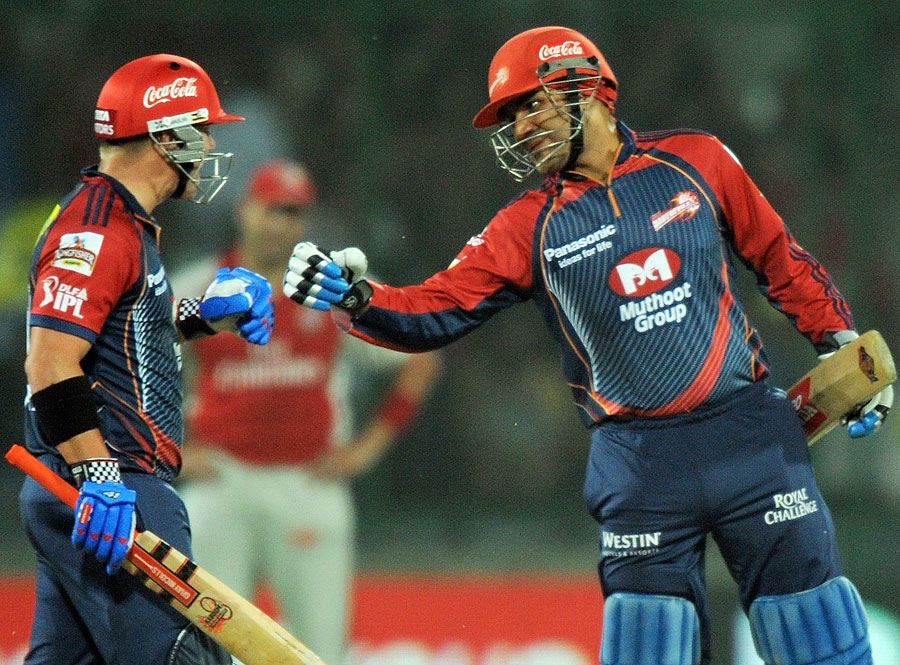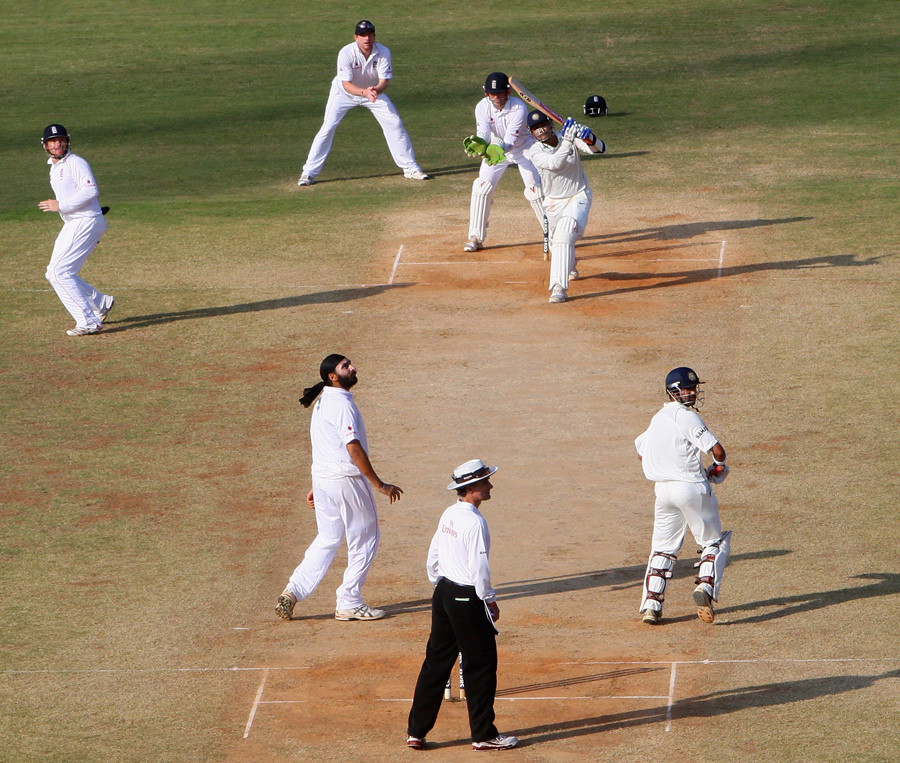David Warner's first-innings hundred in Adelaide was fraught with meaning. One of those meanings has, quite rightly, been less reflected upon than those surrounding the passing of Phillip Hughes, but it nonetheless carries great force.
Warner is at the top of his game now. He has made 11 Test centuries, six of them in the past 12 months (and there will be more to come). He walked out in Adelaide afloat on adrenaline and emotion and began pumping the ball through the field and to the boundary, scoring 30-odd before his opening partner, Chris Rogers, had got to 5.
Cut back five years. Warner has just debuted as a T20 international for Australia without having made a single appearance in first-class cricket. The idea that he may one day play Test match cricket provokes not just laughter but horror. A few days later, Warner runs into India's opening batsman Virender Sehwag.
"He said to me, 'You'll be a better Test cricketer than you are a T20 player,'" Warner recalled. "I looked at him and basically said, 'Mate I've not even played a first-class game yet.' But he said, 'All the fielders are around the bat. If the ball's there in your zone, you're still going to hit it. You're going to have ample opportunities to score runs. You've always got to respect the good ball, but you've got to punish the ball you always punish.'"
Sehwag had looked at Warner and Test cricket through the prism of his own experience, and he knew.
Sehwag was right.
A few days before this Australia-India series was due to start, Sehwag was omitted from India's provisional 30-man squad for the World Cup. He last played Test cricket in March 2013, and last appeared in an ODI in January 2013. He says he wants to go on for another two or three years, batting in Delhi's middle order, but to all intents and purposes, it is perhaps over for him at the top.
He shares the era of Tendulkar, Ponting, Kallis, Dravid and the rest, but he is not one of them. There has always been something about his batting that suggests his otherness.
The great names of his era had deep connections to the game's past in their methods and their styles and their sensibility. Sehwag was always about the future.
He has not operated alone. Chris Gayle, for example, has been the alpha and omega of T20 batsmanship (at least at the top of the order). Sanath Jayasuriya sliced and carved a new way through ODIs. Barry Richards once scored 325 in a day against Dennis Lillee's Western Australia.
And yet perhaps only Brian Lara built huge scores as quickly and as often as Sehwag. But even Lara would often say that the first hour of his innings "belongs to the bowler". Sehwag was not willing to cede them the first delivery.
It was he who came up with the credo by which batsmen will come to live: "see ball, hit ball". A rich and complex game, all of its challenges of psychology and perception and neurology reduced to its barest essential. What joy it has brought. No one piled up runs quite like Sehwag piled them up. And he did it not just for a few overs, but for hours, and then sessions and sometimes days.
There are so many innings to choose from, but here's a thought about one that was almost entirely overshadowed. India's win over England in Chennaiafter the Mumbai terror attacks is rightly remembered as Tendulkar's Test, won with a knock only he could have played.
But it was set up by an innings only Sehwag could have played - 83 from 68 balls, and what was important about it was not his statistics but his intent. Faced with a score never before made to win in India, he simply tore into England's bowlers, smashing them so far and so fast that he shifted the entire psychology of the match from an inevitable England win into a joyous carnival of possibilities.
I have a pet theory that cricket must accelerate to match the culture in which it exists. It must become heightened; more compacted, more intense, more powerful. There's no doubt that it is already happening, and that it will continue to happen. Warner is just the first to walk the path from shortest format to longest.
Sehwag somehow saw that, or felt it, or just knew it deep within his bones. He has been great, and beyond that, he has shaped the future. They are all Sehwag's children now.


No comments:
Post a Comment